Daily Vocabulary Words: Enhance Your Lexicon with Leading Newspapers & Publications
Welcome to the Daily Vocabulary section at Wordpandit!
Our mission is straightforward: to bring you essential vocabulary words featured in top newspapers and publications worldwide. By focusing on words you’ll encounter in renowned sources, we aim to help you enhance your vocabulary effectively and practically.
Our selection includes words from:
– The New York Times
– The Washington Post
– Scientific American
– BBC
– The Guardian
– Psychology Today
– Wall Street Journal
– The Economist
– The Hindu
– The Times of India
– The Economic Times
– Hindustan Times
– Live Mint
– The Indian Express
– And many more.
We are committed to your vocabulary development. Simply visit this section regularly and explore the daily posts. This is your go-to repository for commonly used words, providing significant practical benefits by familiarizing you with vocabulary from the leading publications listed above.
Make it a habit to visit our website daily and expand your lexicon with words from top newspapers and publications.
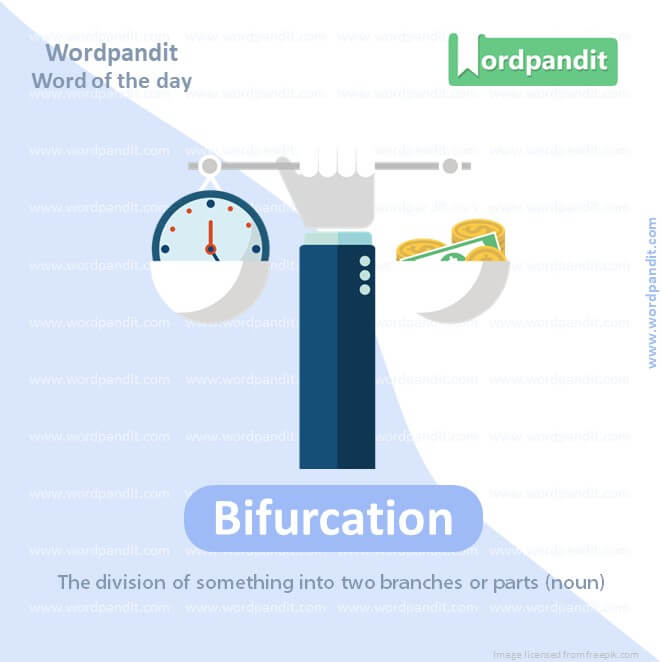
WORD-1: Bifurcation
CONTEXT: The vitriol that dominated the bifurcation discourse for almost half a decade prior to the actual bifurcation has now vanished without trace.
SOURCE: The Hindu
EXPLANATORY PARAGRAPH: Imagine you’re walking on a path that splits into two different paths, and you have to choose which one to take. “Bifurcation” is a word that means something splitting into two parts, just like that path.
MEANING: The division into two branches or parts (noun).
PRONUNCIATION: by-fur-KAY-shun
SYNONYMS: division, fork, split, branching, divergence
USAGE EXAMPLES:
1. The river’s bifurcation created two separate streams.
2. The project faced a bifurcation of opinions among the team members.
3. At the bifurcation, he took the left road.
4. The company’s strategy included a bifurcation of its services.
WORD-2: Resumption
CONTEXT: these long years of living under one political authority could not foster enough of a sense of togetherness to prevent the resumption of their separate journeys.
SOURCE: The Hindu
EXPLANATORY PARAGRAPH: Think about when you pause a game to have lunch, and after eating, you start playing again. “Resumption” is starting something again after it was paused or stopped.
MEANING: The act of beginning something again after a pause or interruption (noun).
PRONUNCIATION: ree-ZUMP-shun
SYNONYMS: continuation, renewal, restart, recommencement, restoration
USAGE EXAMPLES:
1. The resumption of talks between the two countries was a positive sign.
2. After the rain stopped, there was a resumption of the game.
3. The resumption of normal activities took a while after the power outage.
4. They planned for the resumption of work on Monday.
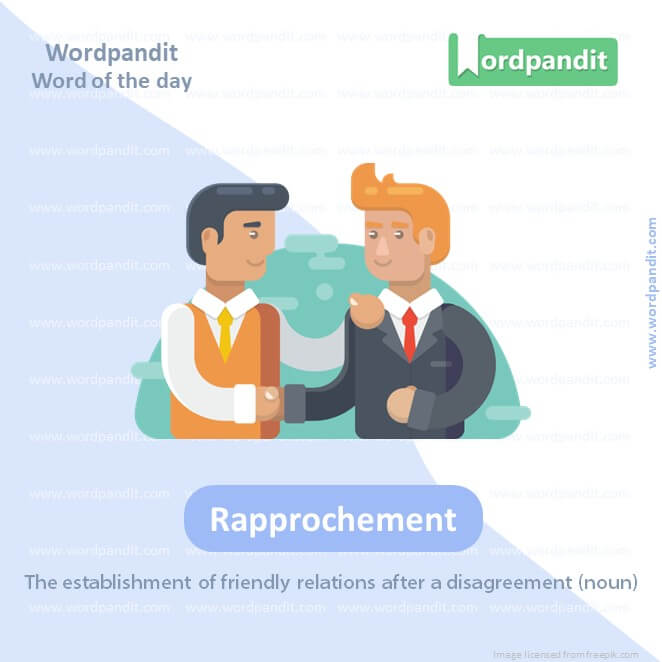
WORD-3: Rapprochement
CONTEXT: Reaching out to the neighbourhood and achieving a rapprochement with Pakistan is, for instance, useful in dealing more effectively with the China challenge.
SOURCE: The Hindu
EXPLANATORY PARAGRAPH: Imagine two friends who had a big argument and stopped talking. Then, one day, they decide to make up and become friends again. “Rapprochement” is when people or groups who were not friendly start being friendly again.
MEANING: The establishment of friendly relations after a disagreement (noun).
PRONUNCIATION: rap-rohsh-MAHN
SYNONYMS: reconciliation, détente, accord, understanding, agreement
USAGE EXAMPLES:
1. The two rival companies reached a rapprochement.
2. A rapprochement was achieved after years of hostility.
3. Diplomatic rapprochement between the nations was welcomed.
4. The leaders’ meeting is seen as a step towards rapprochement.
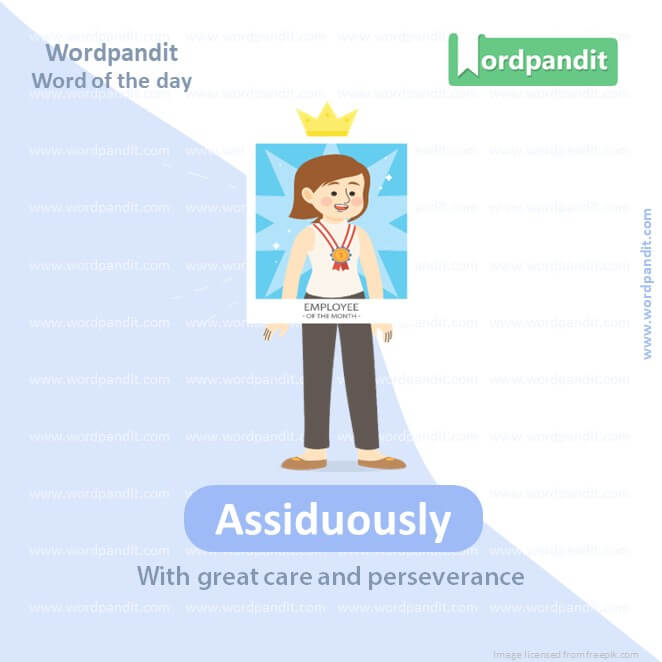
WORD-4: Assiduously
CONTEXT: To achieve this, consistent development of a long-term perspective and routine strategic stock-taking within the government must be assiduously encouraged.
SOURCE: Hindustan times
EXPLANATORY PARAGRAPH: Imagine you are trying really hard to build the biggest and best block tower ever. You work very carefully and don’t stop. “Assiduously” means doing something with a lot of effort and attention, just like you do with your blocks.
MEANING: With great care and perseverance.
PRONUNCIATION: uh-SIJ-oo-us-lee
SYNONYMS: diligently, meticulously, carefully, thoroughly, painstakingly
USAGE EXAMPLES:
1. She worked assiduously on her research paper.
2. The team assiduously prepared for the competition.
3. He assiduously avoided making any mistakes.
4. The garden was maintained assiduously.
WORD-5: Inchoate
CONTEXT: they were at best inchoate organising principles of a still underconfident India.
SOURCE: Hindustan times
EXPLANATORY PARAGRAPH: Think about when you start coloring a picture but have only drawn a few lines. “Inchoate” describes something that is just beginning and not fully formed or developed, like your picture at the start.
MEANING: Just begun and not fully formed or developed (adjective).
PRONUNCIATION: in-KOH-it
SYNONYMS: incipient, embryonic, nascent, rudimentary, undeveloped
USAGE EXAMPLES:
1. The plan was still inchoate and needed more thought.
2. His ideas were inchoate and hard to understand.
3. The legislation was in an inchoate state.
4. She expressed her inchoate thoughts on the project.
WORD-6: Glistening
CONTEXT: One day I was idly thinking how nice it would be to get a kitten, the next I was staring into glistening jade eyes, feeling the vibrations of a purr through warm fur, thinking:
SOURCE: Guardian
EXPLANATORY PARAGRAPH: Think about when it rains, and after the rain stops, you see leaves shining because they are wet. “Glistening” is a word used to describe something shiny because it is wet or polished.
MEANING: Shining with a sparkling light (adjective).
PRONUNCIATION: GLIS-ning
SYNONYMS: sparkling, shimmering, gleaming, shining, twinkling
USAGE EXAMPLES:
1. The morning dew left the grass glistening.
2. Her eyes were glistening with tears.
3. The freshly waxed car was glistening in the sunlight.
4. The snow was glistening under the streetlights.
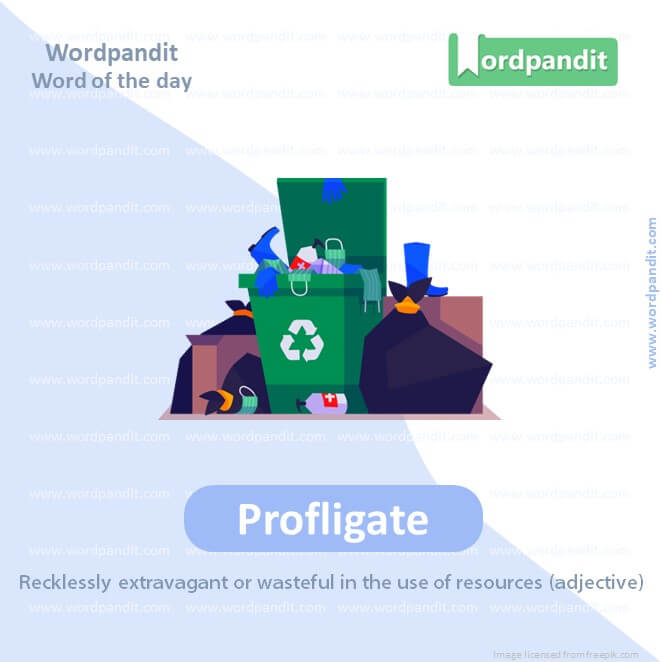
WORD-7: Profligate
CONTEXT: the next five years were consumed by profligate direct benefit transfer (DBT) welfarism. Alternating between these two foci will eventually bring more serious issues to the surface that could be traced to the ham-handed division of the State.
SOURCE: Hindustan times
EXPLANATORY PARAGRAPH: Imagine someone who has a lot of toys but keeps buying more and more, even if they don’t need them. “Profligate” describes someone who spends or uses a lot of something without thinking about saving.
MEANING: Recklessly extravagant or wasteful in the use of resources (adjective).
PRONUNCIATION: PROF-li-git
SYNONYMS: wasteful, extravagant, spendthrift, imprudent, reckless
USAGE EXAMPLES:
1. The profligate prince spent his fortune on unnecessary luxuries.
2. Her profligate spending left her in debt.
3. The company was criticized for its profligate use of natural resources.
4. He warned against the profligate lifestyles of the wealthy.
WORD-8: Placatory
CONTEXT: the placatory assurances and their half-hearted implementation characterised the departure of a six-and-a-half decade-old mature Republic from a core organising principle of its political geography.
SOURCE: Hindustan times
EXPLANATORY PARAGRAPH: Imagine you accidentally broke your friend’s toy, and now you’re trying to make them feel better by being extra nice. “Placatory” describes actions meant to make someone less angry or upset.
MEANING: Intended to make someone less angry or hostile (adjective).
PRONUNCIATION: PLAY-kuh-tor-ee
SYNONYMS: conciliatory, appeasing, mollifying, soothing, pacifying
USAGE EXAMPLES:
1. His tone was placatory when he realized his mistake.
2. She offered a placatory gesture by inviting her colleague to lunch.
3. The placatory measures did little to calm the protestors.
4. He gave a placatory smile during the discussion.
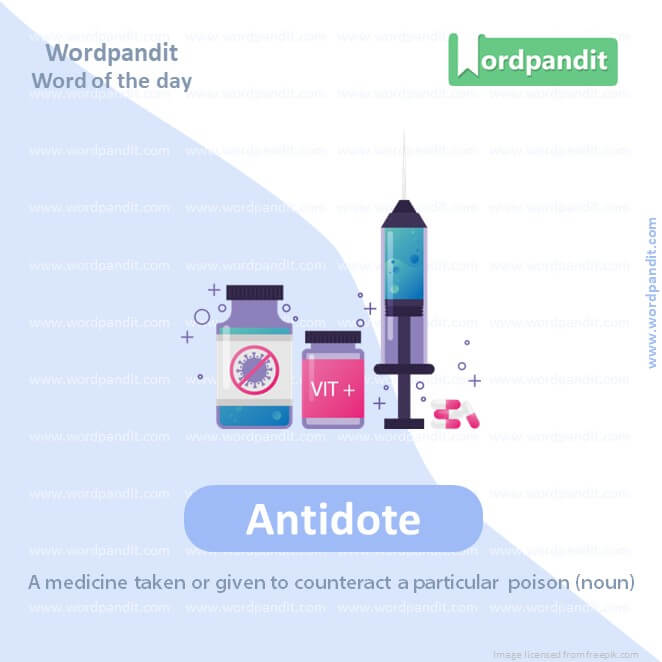
WORD-9: Antidote
CONTEXT: I’m not so sure I want to talk to my cat. I may enjoy the theories, I may find them insightful or even funny (the idea of humans as big hairless cats is especially pleasing as an antidote to our self-importance), but that they are still just theories is part of the joy.
SOURCE: Guardian
EXPLANATORY PARAGRAPH: Imagine if you ate something that made you feel really sick, and then you got a special kind of medicine that made you feel better. An “antidote” is something that stops the bad effects of something else, like a cure.
MEANING: A medicine taken or given to counteract a particular poison (noun).
PRONUNCIATION: AN-ti-dote
SYNONYMS: remedy, cure, solution, corrective, countermeasure
USAGE EXAMPLES:
1. The doctor administered the antidote to the snake venom.
2. Humor is a good antidote to stress.
3. They searched for an antidote to the spreading misinformation.
4. The antidote must be given within an hour to be effective.
WORD-10: Immortalised
CONTEXT: It also might also be worth recalling one of the most famous animal-decoding exercises – not least because it’s now been immortalised as an internet meme. It took place in the 70s, with a chimpanzee known as Nim Chimpsky.
SOURCE: Guardian
EXPLANATORY PARAGRAPH: Imagine drawing a picture or writing a story that people love so much, they keep talking about it even when you’re very old. “Immortalised” means making someone or something famous forever, like heroes in stories.
MEANING: Made famous for a very long time (verb).
PRONUNCIATION: ih-MOR-tuh-lized
SYNONYMS: eternalized, perpetuated, memorialized, celebrated, enshrined
USAGE EXAMPLES:
1. The hero was immortalised in numerous songs and stories.
2. She was immortalised with a statue in the city square.
3. His deeds during the war immortalised his name.
4. The photograph immortalised the moment of victory.
Vocabulary Difficult Words
In our journey of language learning, an encounter with ‘vocabulary difficult words’ is inevitable. These seemingly intimidating terms can often seem like stumbling blocks. However, they also offer a unique chance to deepen our understanding and competence in the language. With a strategic approach, learning ‘vocabulary difficult words’ can become less daunting and more of an empowering undertaking.
To befriend ‘vocabulary difficult words’, comprehension is key. Familiarize yourself with the meaning, usage, and context of these words. Utilize different resources such as books, documentaries, online articles, and digital content. This contextual exposure can ease the process of understanding ‘vocabulary difficult words’.
Challenging as they may seem, ‘vocabulary difficult words’ can be tamed with appropriate memory tactics. Use of flashcards or digital language learning apps that support active recall and spaced repetition can be effective. To foster deeper connections with ‘vocabulary difficult words’, employ mnemonic techniques. This cognitive strategy, involving association of new information to known concepts or stories, aids in better retention and recall.
Another essential in mastering ‘vocabulary difficult words’ is practice. Be it in conversations, written communications, or social media interactions, endeavor to incorporate these words. Practice not only reinforces your knowledge but also enhances your confidence in using these words.
In conclusion, navigating the terrain of ‘vocabulary difficult words’ involves a confluence of comprehension, memory tactics, and active practice. These strategies, interwoven, help transform intimidating words into familiar friends. By conquering ‘vocabulary difficult words’, you not only augment your vocabulary but also elevate your language skills. Remember, every challenging word unlocked is yet another ornament in your linguistic archive. So, delve deep into the ‘vocabulary difficult words’, and uncover the treasures they hold.













